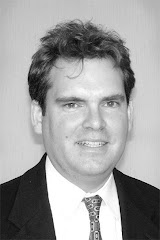But we are exhausted with two weeks of effete urban commentators, caffeinated with $4 lattes and speaking through studio-make-up shined faces, telling us what we think about what Obama said.
And, yes, we can smell Hillary Clinton’s contrived outrage, her false fury over the remarks, for what it is: political opportunism, the carbohydrates fueling the Clintons’ royal run.

You see, we don’t have to guess on this one. We don’t need talking heads on MSNBC to do our figuring and ciphering. Here in western Iowa’s small towns we actually got to know Obama about as well as any voters in contemporary American presidential politics can.
As a reporter and columnist based in Carroll, the hub of west-central Iowa, I tracked Obama’s schedule for the nearly one-year campaign in Iowa. Some days, Obama would be in five, six or more small communities.
I’d give Obama better odds at finding his way from Carroll to Sioux City without a map than any of the pundits calling him elite.
Speaking as a small-town American (Carroll, Iowa is 10,000) I can say this: we want a president smarter than everyone we know. Obama passes that test. Does it make him “elite” in our eyes? Yes, but in the manner of a standout student, a superior speaker, not an out-of-touch pol.
This isn’t to give Obama a free pass with what he said earlier this month at a fund-raises in San Francisco:
“You go into these small towns in Pennsylvania and, like a lot of small towns in the Midwest, the jobs have been gone now for 25 years and nothing’s replaced them.
“And they fell through the Clinton administration, and the Bush administration, and each successive administration has said that somehow these communities are gonna regenerate, and they have not.
“And it’s not surprising then they get bitter, they cling to guns or religion or antipathy to people who aren’t like them or anti-immigrant sentiment or anti-trade sentiment as a way to explain their frustrations.”
Obama made a classic American mistake with these hyper-chronicled meanderings about “bitter” small-town people.
You can’t joke or characterize people who don’t live and look like you. Even if, well, you are right.

As a white, rural man I am on a foundation of quicksand should I write anything about Bill Cosby’s assessment of the African-American community’s values implosion or repeat challenging comments Hispanic friends make about their own evolving culture in western Iowa.
But I can tell you that Obama, while talking like white men dance with those San Francisco comments, is on firm factual footing.
In his groundbreaking book “What’s The Matter With Kansas,” Thomas Frank could just as easily have been talking about western Iowa when probes deeply into why working class people vote against their own economic interests.
“How is that the Kansas conservative rebels profess to hate elites but somehow excuse from their fury the corporate world, even when it has so manifestly (hurt) them?” says Frank.
Moreover, he writes, “Apparently there is no bad economic turn a conservative cannot do unto his buddy in the working class, as long as cultural solidarity has been cemented over a beer.”
We see it right here in western Iowa in our desperate small towns.
“Walk down the main street of just about any farm town in the state, and you know immediately what they’re talking about: this is a civilization in the early stages of irreversible decay,” Frank writes of Kansas.
Why do people who live in dilapidated homes in Iowa’s forlorn villages, people whose first electric light may have come through the Rural Electricification Administration, people who live in a land capitalism long since left behind, vote for corporate shilling, government-bashing conservatives?
Conservative Iowa politicians and their followers are actors in a tragic play. They posture as independent pioneers living in mud huts and getting by with just a mule and plow, plenty of pluck and nary a buck from Uncle Sam.
But Iowa — and western Iowa to even greater degree — is reliant on the federal government in the way of a newborn and his mother’s milk. In short, rural America needs the federal government.
All of this doesn’t make for good political brochures, and dependence is not the image we want to project. It does happen to be true, though. The proof is in the cashed checks.
Consider this fact alone: From 1995 to 2002, total U.S. Department of Agriculture subsidies for farms in Carroll County stood at $114 million, with 2,348 recipients, according to a federal database used by the Associated Press and The Des Moines Register. Our American way of life of preservation of the food supply demand that these subsidies continue.
That considered, does any thinking person believe Obama’s brief and failed turn as a rural anthropologist will hurt him more than what Republican presidential candidate John McCain said today in Alabama?
“We must reduce barriers to imports, to things like ethanol from Brazil, and we’ve got to stop subsidizing ethanol in my view,” Senator McCain said.
If the ivory-towered urban elites hawking their tiresome flyover views on cable television each night want to see what a bitter small-town American looks like, they can come to western Iowa during the second year of what we have every reason to expect would be a decidedly anti-rural John McCain presidency.
Barack Obama misspoke. John McCain didn’t.
Rural Americans know the difference.
This story is cross-posted at Iowa Independent.com where it first appeared.





No comments:
Post a Comment